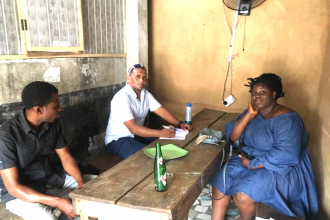Are People More Patient with Their Spouse’s Money? An Experimental Study
We study how partners in a household make decisions for themselves and for their spouses regarding intertemporal choices in a field experiment in rural China. We find that men, but not women, make decisions that are more patient for their spouses compared with their predictions of their spouses’ decisions, in particular when choices involved two delayed options. Instead the decisions for their spouse are close to the decisions they made for themselves. At the same time, we find evidence of sorting of preferences within households, i.e.







